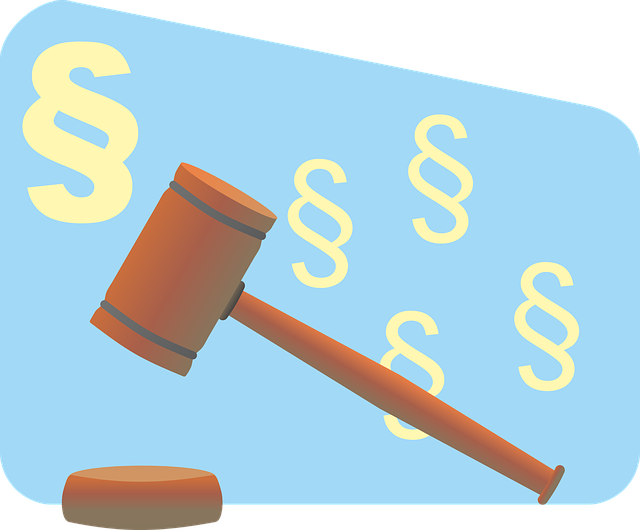The RF Securities Industry Regulation oversees financial markets, emphasizing fair practices and investor protection. In case of a contract breach, immediate actions include notifying authorities, internal investigation, and strategic response. Enhancing vigilance through reviews, monitoring systems, and regulatory updates is crucial for swift detection. Post-breach, evidence gathering, investigations, settlements or litigation ensure justice. Initial steps involve fact-finding, root cause analysis, stakeholder notification, and crisis management to protect reputation. Preventing breaches through strong contract clauses and immediate response minimize risks in RF Securities trading.
“The RF Securities Industry Regulation is a vital pillar in ensuring fair, secure, and transparent financial markets. This comprehensive guide explores the intricate landscape of RF securities regulations, providing an in-depth understanding for industry professionals. From identifying contract breaches that can disrupt trading, to post-breach response strategies aimed at swift resolution, this article offers practical insights. Additionally, we delve into preventive measures, emphasizing the importance of robust contracts for mitigating risks and ensuring a secure trading environment. Understanding these steps is crucial for all involved in navigating the complex world of securities regulation.”
- Understanding RF Securities Industry Regulation: A Comprehensive Overview
- Identifying Contract Breaches in the Securities Sector
- Post-Breach Response: Steps to Mitigate and Resolve Disruptions
- Preventive Measures: Strengthening Contracts for Secured Trading
Understanding RF Securities Industry Regulation: A Comprehensive Overview

The RF Securities Industry Regulation is a complex web of laws and guidelines designed to protect investors and maintain fair market practices. It encompasses various rules covering everything from initial public offerings (IPOs) to insider trading, ensuring transparency and integrity in the financial markets. Understanding this regulation is crucial for all stakeholders—from investment banks and brokers to individual investors and respective businesses.
In case of a contract breach within the securities industry, there are specific steps to take. These include immediate notification to relevant authorities, conducting an internal investigation to assess liability, and developing a response strategy. The approach should consider both regulatory requirements and potential implications for white-collar defense strategies. Additionally, engaging in general criminal defense measures can help mitigate risks associated with breaches, ensuring compliance with the law while protecting the interests of all involved parties.
Identifying Contract Breaches in the Securities Sector

Identifying contract breaches in the securities sector is a critical aspect of maintaining market integrity. When a party fails to fulfill their contractual obligations, it can lead to significant financial losses and reputational damage. In high-stakes cases involving complex financial instruments, detecting these breaches promptly becomes essential. Professionals in the industry must stay vigilant by thoroughly reviewing contracts, implementing robust monitoring systems, and staying updated on regulatory changes that might highlight potential violations.
The steps to take after a contract breach can vary widely depending on the severity of the infraction. In some cases, it may involve mediation or arbitration to resolve disputes amicably. For more serious matters, legal action is often necessary, with regulators across the country closely watching high-profile incidents that could impact philanthropic and political communities. The process typically includes gathering evidence, conducting investigations, and negotiating settlements or pursuing litigation to ensure justice and deter future breaches.
Post-Breach Response: Steps to Mitigate and Resolve Disruptions

In the event of a contract breach, particularly in the high-stakes realm of RF securities, an immediate and comprehensive response is crucial to mitigate potential disruptions. The first step is to gather all relevant facts and documents related to the breach, as this will be essential for resolving any legal ramifications. This includes conducting a thorough internal investigation to identify the root cause of the breach, assess its impact on operations, and determine if any regulatory compliance issues have arisen.
Effective communication is another vital step in managing post-breach scenarios. Companies should promptly notify relevant stakeholders, including investors, employees, and regulatory bodies, about the situation. Transparency regarding the breach, the actions taken to address it, and the potential implications can help foster trust and prevent further disruptions. Additionally, having a robust crisis management plan in place, which includes procedures for handling media inquiries and public relations, can mitigate any negative effects on the company’s reputation, especially in white-collar and economic crime cases where public perception is critical.
Preventive Measures: Strengthening Contracts for Secured Trading

In the RF Securities Industry, preventing contract breaches is paramount to maintaining a secure trading environment. To this end, strengthening contracts for secured trading should be one of the primary steps. This involves incorporating robust clauses that outline the rights and responsibilities of all parties involved, with a special focus on risk management and dispute resolution mechanisms. An unprecedented track record of successful implementations across the country testifies to the effectiveness of these measures in mitigating potential risks.
Should a contract breach occur despite these preventive measures, there are specific steps to take. The first course of action is to promptly assess the extent of the breach and its impact on the trading operations. This involves gathering evidence, consulting legal experts, and determining appropriate remedies based on the contractual agreements. Effective communication with all relevant stakeholders, including clients, is crucial during this process. The goal is to not only resolve the immediate issue but also establish a framework that reinforces secure trading practices for the future.
The regulation of the RF securities industry is a complex yet essential aspect of maintaining fair and secure trading practices. By understanding the intricacies of contract breaches within this sector, we can implement effective strategies for resolution and prevention. The discussed steps post-contract breach offer crucial guidelines for minimizing disruptions, while preventive measures fortify contracts, ensuring a more robust and resilient securities market. Adhering to these principles is vital for both investors and regulators alike, fostering an environment of transparency and trust in the digital age.






